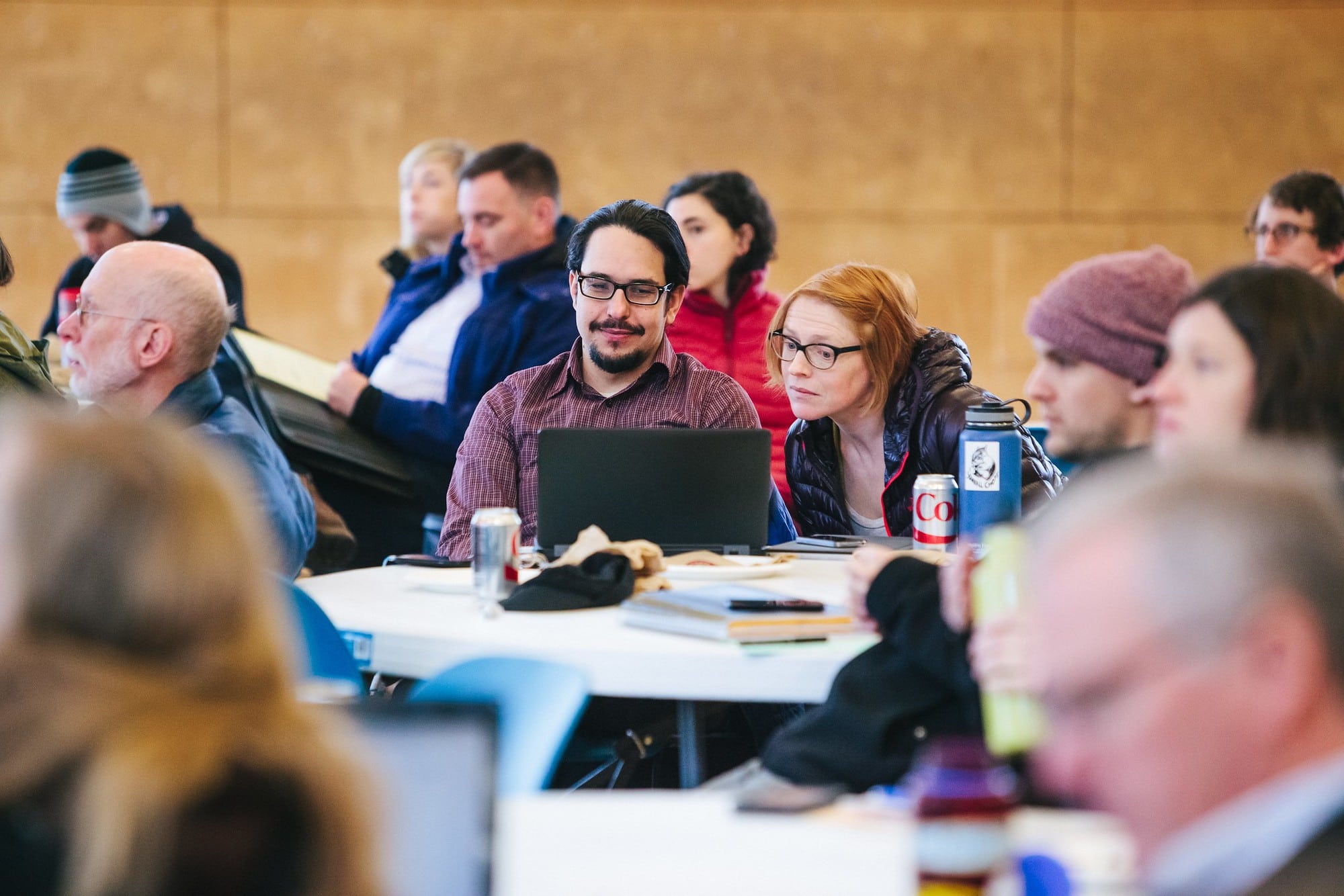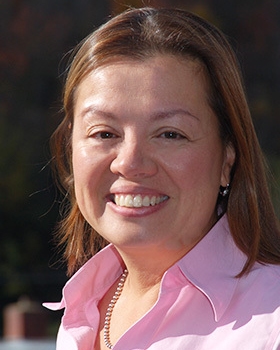Energy Trust of Oregon’s Inclusive Innovation Project: Leveraging Community Expertise to Develop Equitable Solar Programs

Energy Trust of Oregon has a long history of clean energy innovation; it was involved in expanding the first Solarize program in the country in 2009. More recently, Energy Trust’s Inclusive Innovation Project sought to adapt innovative business development models to create effective solar programs that reach under-resourced customers throughout Oregon. Over the past four years, staff have explored ways to make solar more affordable and accessible for lower-income customers, rural customers, and communities of color.
By employing new methods to get community feedback, to quickly innovate, and to make programmatic changes rapidly, the Energy Trust was able to reach new customers, test products in the field, and use customer feedback to redesign and improve their solar program offerings. By building relationships with community organizations across the state, Energy Trust adapted this model to create a system for learning, teaching, and experimenting. The Inclusive Innovation Project has led to more effective programs, transformed methods for creating new solutions, and has resulted in new solar PV systems generating power in under-resourced communities. This replicable and adaptable approach can be used in other areas of the country to expand the benefits of solar in more communities.
Building on the Past to Support New Innovations
Energy Trust’s solar program has a successful history of installing residential, commercial, and utility-scale projects across the state. Since 2002, it has supported the installation of more than 15,000 PV systems in Oregon, totaling 159 megawatts in capacity. Recognizing the need to ensure equitable deployment of solar, Energy Trust examined other state programs across the country but found that those that were most successful had larger budgets than Energy Trust had available. The challenge for Energy Trust became how to develop its own solar programs that could meet the needs of under-resourced customer groups and communities within the limitations of its budget. Development and implementation of its strategy was funded in part by an award from the US Department of Energy Solar Energy Technologies Office.
Energy Trust adapted a business development model that starts with identifying a need or gap in the solar market, followed by design and experimentation, testing products/solutions with consumers, and making adjustments based on feedback. The resulting model provided opportunities for capacity building, community engagement, and partnership development in local communities. The Inclusive Innovation Project has also made traditional rooftop residential solar more affordable in Oregon by offering an incentive for low- and moderate-income customers who may be unable to make use of federal tax credits, and by adjusting its non-residential funding for solar to allow for more nonprofit- and diversity-focused incentives.
Engaging in Ideation with Local Communities
To better understand the customers they had been under-serving, Energy Trust turned to the experts: the communities and community-members themselves. Energy Trust met with multiple community-based organizations in person, recognizing that outreach, engagement, and fostering relationships were paramount to the success of this model.
Energy Trust began this process by hosting four public meetings across the state in early 2017. The meetings featured presentations, small group discussions, and a locally catered meal. The 140+ attendees provided critical insight into community values, priorities for clean energy deployment, and contact information for those who wanted to stay involved. From there, Energy Trust formed a working group with representatives from community-based organizations and agencies that work with frontline, under-resourced communities. This working group met regularly over seven months to build relationships with each other, to learn about solar, and to develop and consider solutions. One of the early pieces of feedback was that the predominately nonprofit working group members’ time must be valued, so Energy Trust provided a stipend to enable their participation.
To test the new ideas that emerged from the working group with potential customers, staff from Energy Trust went back on the road in early 2018. Staff met with 30 organizations in nine communities throughout the state to solicit input on the proposed solutions. These one-on-one meetings were held with community action agencies, tribal governments, social service providers, housing authorities, county and local agencies, solar installers, energy groups, and interested residents. Input at this level was fundamental to refining Energy Trust’s strategies and to developing trial programs.
Information Sharing, Mutual Education, and Effective Collaborations
Despite a great deal of interest from under-resourced communities in solar, Energy Trust found gaps in their understanding of solar that made it challenging for them to initiate projects or engage with solar policymaking. To close these gaps, staff launched a second iteration of the working group in the second half of 2018 with target outreach into low-income communities, communities of color, tribes, and rural areas for working group members. Over the course of eight months, Energy Trust staff learned even more from participants about their challenges with adopting solar, and then staff helped participants build their knowledge with lessons on solar technology, system costs, financing, and related housing issues. Once again, stipends were provided to enable community participation in this group.
Iteration is another essential element of the model but experimenting with solar deployment programs can be challenging. Nonetheless, Energy Trust awarded $10,000 Innovation Grants in early 2019 to support eight community groups to develop their own program and project ideas for overcoming barriers to solar for people in their communities. These grants helped to build greater capacity among community partners and to empower them to create solutions tailored to their needs. The grants were awarded through a competitive process using selection criteria developed with the working group. As grantees progressed in their work, they received feedback from the working group, allowing for incremental and iterative adjustments.
The grantees included small community organizations, a housing authority, Habitat for Humanity, an African American homeownership organization, and a coalition of rural cities. The program model’s grantees developed a variety of approaches and represented sectors as diverse as their organizations: rooftop and community solar; single-family, manufactured and multifamily housing; loan and savings approaches; specific projects; and community education.
Alongside the solutions developed by community groups, Energy Trust took two recommendations that emerged from the working group and rapidly developed them into new incentive offerings with a first-year budget of $850,000: Solar Within Reach and Community Solar Development Assistance.
Instead of the six months it can commonly take to design and launch a new program offering, Energy Trust launched these two offerings in two months by rapidly prototyping. Staff developed a proposal, got feedback from the working group network, then quickly reworked the proposal, repeating that cycle several times until they arrived at a ready-to-launch program.
Solar Within Reach, a solar installation offering that provides higher incentives and other services for income-qualified homeowners, was launched in late October 2019. As an added layer of consumer protection for customers who may be more vulnerable and subject to predatory sales practices, Solar Within Reach projects must be installed by Energy Trust-approved contractors. These contractors must maintain a top-level performance rating with the program, participate in special training, provide longer warranties, and agree to stronger customer service standards.
Community Solar Development Assistance, launched in early November 2019, supports early development work on small public or nonprofit-led community solar projects with specific goals to benefit low-income customers, renters, communities of color, tribes, and rural customers. The objective of this offering is to increase the feasibility and success of these community-driven projects so that they have an equitable opportunity to participate in Oregon’s new Community Solar Program.
Many public and nonprofit organizations lack experience developing renewable energy projects and need additional support to bring these projects to their communities. This is especially true for risky, early development work, such assisting, financial modeling, land use permitting, and preliminary interconnection—all of which must be resolved prior to apply for Oregon’s Community Solar Program. Community Solar Development Assistance incentives can be used to help pay for a variety of project development activities that occur prior to installation, including grant writing, feasibility studies, interconnection support, and other technical assistance. Funding can also be used to offset some of a nonprofit organization’s time spent managing the project during this early stage.
Two other new offers that expand on these programs are also in the works, with an anticipated first-year budget of $2 million and a planned launch in mid- to late-2020. One will expand on Solar Within Reach, with a focus on greater funding and support for installing rooftop solar on affordable multifamily properties and at other businesses serving and located in under-resourced communities. The other will extend support for public and nonprofit-led community solar projects and will cover a portion of construction costs for those projects. Staff are applying the experiment-and-test method to all new incentives and adjusting elements as they learn from customers what is and is not working.
Innovations and Investments
Energy Trust’s extensive portfolio of solar incentives tailored to support under-resourced customers is a significant change from three years ago when it had just two offerings—one for residential customers and one for commercial customers—and no additional funding available for customers who couldn’t take advantage of tax credits and other enabling clean energy policies.
The Inclusive Innovations Project had two components that were crucial to its success. The first was the use of stipends to support community and nonprofit participation in both working groups, something Energy Trust had not previously offered. Community-based organizations made clear that they could not absorb the staff costs for hours needed for working group participation. Many operate on tight budgets and cannot be expected to take on additional work for free, and solar energy did not factor into the core mission of most participating organizations. Energy Trust invested $42,000 in stipends over three years for two working groups, which also covered travel costs for participants in rural parts of the state, several of whom had to travel six hours to attend meetings. The stipends were critical to having a variety of voices at the table. Energy Trust has since revisited its policies regarding its advisory councils and begun offering stipends to members of its newly formed Diversity Advisory Council.
The other critical component was the provision of the Innovation Grants, which totaled $80,000. The goal of the grants was to empower and support communities to develop their own program and project ideas. This method recognizes community-based organizations know the people they serve best, and with support, they may be able to come up with even better program ideas.
Through the Inclusive Innovation Project’s iterative and open process, Energy Trust staff confirmed that the activities that were held to solicit input from all stakeholders was fundamental to creating effective programs tailored to the communities they are intended to serve. The input gained from empowered community partners helped the Energy Trust to improve its programs. By listening and learning, Energy Trust was able to build trust with community members, value the expertise of others, and take an informed approach to constructing new, responsive, and effective programs and offerings. Going one step further to build knowledge and capacity in communities resulted in meaningful, efficacious feedback and an improved system for developing and modifying future programs.
Energy Trust is promoting this model for others to adopt and replicate and is happy to share with other organizations the tools developed for this project, including listening sessions outlines; worksheets used to teach concepts of solar output, capacity, and cost; meeting agendas; stipend applications; innovation grant applications; and background on program models developed by innovation grantees and lessons learned.
The Energy Innovation Project was awarded a 2020 State Leadership in Clean Energy Award by the Clean Energy States Alliance. The Energy Trust of Oregon presented on the Energy Innovation Project in a CESA webinar on July 23, 2020 – watch the webinar recording here.
Published On
August 20, 2020

